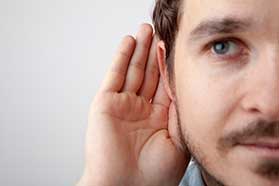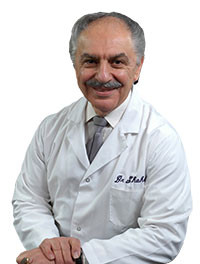Communication Disorder Treatment in Hackensack, NJ

A communication disorder is any disorder that affects one’s ability to communicate or comprehend communication. Stuttering, misarticulating, unmitigated loss of speaking ability (aphasia), and hearing loss are examples of communication disorders. Disorders like these can cause significant distress in day-to-day interactions and activities.
Types of Communication Disorders
According to Psychology Today, an estimated 10 million Americans have some form of communication disorder. This common problem comes in many forms, the first of which is dysfluency—the disruption of fluent speech.
The first form of disfluency is stuttering. Identified by the disruption of speech with hesitations, repeated sounds and prolonged sounds of speech. 15 million people stutter globally according to Psychology Today. Stuttering usually starts between ages 2 and 6, with one out of every 30 of those children having stuttering that lasts beyond 6-months.
Another form of dysfluency is articulation issues. Articulation is the way sounds are made and used together. Articulation issues are usually omitting sounds (at the end of words), using wrong sounds (like adding a “w” in place of an “r” sound: “railroad” becomes “wail woad”) or changing the sound of words (“ax you a quession” instead of “ask you a question”).
However, when you have trouble speaking altogether (physically producing sounds), it’s known as a voice disorder. An injury, infection or deformity of the vocal cords can inhibit the way in which we produce sounds and thus communicate. Voice disorders may also present in inappropriate vocal volume and pitch.
Language disorders can also inhibit the way in which we communicate. However, a language disorder doesn’t affect the physical way we communicate, but instead, is a misunderstanding or misinterpretation of the tool we use to communicate. Language is more than a set a set of words; it encompasses context, vernaculars, beliefs, attitudes and societal norms. It’s our main tool of communication. An underdeveloped language system can contribute to misunderstanding and thus a language disorder if the problem causes significant distress.
Children can develop the condition from simply not learning the language, while adults may develop a language disorder from health problems like a stroke , neurocognitive disorders like Alzheimer's disease , and even a tumor.
Aphasia is a common side effect of stroke and neurocognitive disorders. Aphasia is the loss of previously known language/communication skills:
- Global aphasia: The complete loss of all speaking, reading and writing skills.
- Anomic/nominal: Inability to remember nouns.
- Receptive: Seeing or hearing known words but being unable to interpret them.
With central auditory processing disorder (CAPD), the problem is not with communication, but with understanding communication from others. CAPD presents with misidentified sounds. Words that sound alike may be interchanged in the sufferer’s mind (“stool” can become “pool”). CAPD typically happens in environments rich in background noise or when complex information is being communicated.
Treatment for Communication Disorders
Individual therapy from a speech-language pathologist is a proven method for concurring many different forms of communication issue and disorder. They are dedicated specialists in the field of communication and will likely teach new strategies and coping devices via speech therapy, many of which you practice at home. For those with CAPD, an audiologist can help pinpoint the root of your communication distorting auditory issues. Regardless of your communication issue, seek help today, and tell your story clearly tomorrow.
Request more information about communication disorders today. Call (201) 806-6099 or contact Dr. M.T. Shahab online.
Medwell Orthopedics & Functional Medicine for Men & Women
Address
33 Central AveMidland Park, NJ 07432
(201) 806-6099
www.BergenCountyDoctors.com
Hours
Mon:
8:00 am - 8:00 pm
Tue:
2:00 pm - 7:00 pm
Wed:
8:00 am - 6:30 pm
Thu:
8:00 am - 1:00 pm
Fri:
8:00 am - 6:30 pm
Sat:
9:00 am - 1:00 pm
Sun:
By Appointment Only


